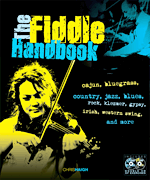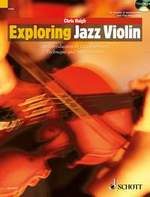
MENU TO FIDDLE STYLES:
CLAYTON McMICHEN- A pioneering country fiddle player
Clayton McMichen, also known as “Mac” was a major figure in the early history of commercial country fiddling in America, and his career traces the sometimes difficult path from the image of the comedic hillbilly to something more serious and sophisticated.
Born in 1900 in Georgia, McMichen was surrounded by music from an early age- both his father and grandfather were notable fiddlers. Eventually he would inherit his father’s Italian violin- an Antigino Fierini dated 1723. Atlanta was a major centre for fiddle contests, drawing crowd in the thousands. These contests had been a feature of the fiddling world in America for two centuries, but interest in them reached a fever pitch in 1926 when the industrialist Henry Ford sponsored a series of them at his car dealerships around the country, in an attempt to foster old fashioned values and help stave off the twin evils of jazz and communism.
Mac soon began trying his hand, though from the start he objected to the “trick fiddling” and comedy stunts which players like Fiddlin’ John Carson (the first fiddler to have a commercial recording hit) used to win over the crowd. He even tried to organize his own alternative contest where fiddlers could be judged purely on technique, though this never got off the ground. It was at one of these contests that he met Marcus Stokes, and from him he learned the “Georgia Long Bow” style, where instead of playing short “jiggy bow” strokes- typical of the old Appalachian style, he played long, smooth bows with more slurs. Soon he was winning the contests. He would eventually take the National Championship 16 times, mostly playing his own specialised version of “Bile ‘em cabbage down”. Another of his contest favourites was Fisher’s Hornpipe, which he would play in four different keys; F, Bb, G and D. His contest playing included cross tuning, double shuffles, high position playing and improvised breaks.
In 1926 the A&R man for Columbia records, Frank Walker, put together a group of musicians to form a string band which would feature fiddles, banjo, guitar and vocals, and would trade on the image of the Georgia backwoods hillbilly. Fronting the band was Gid Tanner, a red-headed singer, fiddler, banjoist and chicken farmer. On guitar and vocals was the blind Riley Pucket. McMichen was called in, along with his brother in law, Bert Layne, both on fiddle.
String bands were common in the south, but the triple fiddles was an innovation. The band was named “Gid Tanner and the Skillet Lickers” A skillet licker was a derogatory name given to a hillbilly so poor and hungry he had to lick the pan clean. Tanner got his own name on the bill because he had already done some recordings for Columbia, but McMichen in particular objected to this and eventually they would be snappily billed as “Gid Tanner & His Skillet Lickers with Riley Puckett & Clayton McMichen”. From the start Mac considered himself, rightly, to be the best musician in the band.
Their first release was a song called “Bully of the Town”, with a B side “Pass around the bottle and we’ll all take a drink”, sung to the tune of the old Civil War song “Glory, Glory Allelujah” It follows a formula which they were to use again and again. Vocal verses alternate with instrumental verses. Two fiddles are in unison, the third on a lower harmony, and the melody continues with two fiddles behind the vocals.
It is interesting to note how the role of the fiddle in country music developed over a few brief years. The first two songs from the Skillet Lickers have no intro or outro. It seemed to be the norm in the 20’s to simply start with the first verse and finish at the end of the last verse. Very quickly, however, a simple rule was established for the end of a song- the fiddle would play the phrase known as “shave and a haircut, two bits”. After the first few, this appeared at the end of almost every Skillet Lickers song. The fiddle intro, however, which would become universal by the time Hank Williams was recording in the 1940’s, was still unheard of. There was also little differentiation between what the fiddles did in the instrumental breaks, and behind the sung verses- mostly the fiddles would play the same melody all the way through. Only in his later career would McMichen begin to play occasional improvised “fills” between vocal lines, and to cut loose with actual solos.
McMichen often introduced songs with a spoken line such as
“Folks, here we are again, the Skillet Lickers, red hot and raring to go. And Maw, don’t you let ‘em dance on your new carpet. You make ’em roll it up”.
It was simple, unsophisticated stuff but the record buying audience loved it- it would eventually shift 200,000 copies. In no time The Skillet Lickers were the nation’s favourite string band, and a long string of hits followed.
Comedy Skits
Walker came up with another formula, the comedy skit. This involved a simple story line acted out by the band, adopting the role of simple but crafty backwoodsmen. Embedded within this would be short bursts of song or fiddle music. It was the kind of thing which was already tried and tested on the vaudeville circuit, but on record it was new and sensational. The first was “A Corn Licker still in Georgia”, and when this proved a hit, titles such as “Hog Killing Day”, “Possum Hunt on Stump house Mountain”, “The Kickapoo Medicine Show” and “A fiddler’s Convention in Georgia” soon followed. Altogether these skits sold the best part of a million copies.
The record industry knew it was on to a good thing. Fiddler Eck Robertson had led the way in 1922, laying down what is generally considered the first country music record - a justly famous and sensational version of the contest standard Sally Goodin. However, this release was not a great commercial success, and it soon became obvious that however good the fiddler, instrumental music on its own would never capture the mass market. What was needed was vocals, and the determined exploitation of a humorous, comfortable and folksy stereotype of the simple hillbilly. Clayton McMichen rode the tide of success of this exploitation, but eventually he would begin to deeply resent it.
During the Skillet Lickers period, McMichen continued to work on the fiddle contest circuit. In 1933 he was approached by a promoter, Larry Sunbrock, and together they hatched a plan to play special “showdown” contests between himself and a character called Natchee the Indian (actually Clifford Storer- more of a cowboy than an Indian). The two would show up at a town and appear separately on radio shows, bragging about their own prowess and talking down the opposition;
“Howdy, Howdy, Howdy. I hear there’s an Indian in town playing on another station that thinks he can beat me fiddlin’. If that Indian Natchee beats me Sunday, I’ll eat my fiddle on the stage!”
Simulated pre-match fist fights would further help to build up the tension, and audiences would flock in their thousands to see the contest. In St Louis they drew 24,000 in a day. The two fiddlers would each play a blistering set of tunes, and then Sunbrook would ask the audience to cheer in turn for one or the other. The most popular took the winner’s place, though of course both were paid an agreed fee. If McMichen lost he would snarl:
“Ladies and Gentlemen. All of you who applauded me, much obliged…and the rest of you can go to hell!”
These were good times for McMichen. Not only was he raking it in from the contests, and from his earnings from the Skillet Lickers, but he was also much in demand to play on other artists’ records. He was one of the first session musicians in country music, working for, among others, the “singing brakeman” Jimmie Rodgers, who among his many hits sang a song penned by McMichen, “Peach Pickin’ time down in Georgia”. At his peak, Mac was earning $3,000 a year from Columbia alone.
Western Swing
However, tensions within his own band continued to fester. As the 30’s progressed, country music was changing, and the much more sophisticated western swing sound was being developed by the Lightcrust Doughboys and the Texas Playboys. This incorporated pop and swing music, brought in exciting harmonies and textures, and hot soloing. McMichen very much wanted to move in this direction, but felt constrained by the relatively poor musicianship of his band members, by the hick backwoods image presented by Gid Tanner, and by the conservative attitude of Columbia who, in the face of diminishing sales during the depression, wanted to play safe with what had in the past proved a winning formula.
In 1931 the band split. After a brief period when both he and Tanner were leading rival Skillet Licker lineups, McMichen then formed a new outfit, the Georgia Wildcats, using the nickname he had acquired in his earlier contest playing days. In the new lineup was guitarist Slim Bryant, who could play deadened jazz chords, and solos, giving the band a much more contemporary sound than the old hillbilly open-string guitar sound. McMichen was now free to play proper hot improvised fiddle breaks, and to create complex twin fiddle parts. Among their best work was Bile them Cabbage Down, a reworking of his contest showpiece, packed with exciting fiddle technique. There were also fine songs like “I wonder who’s kissing her now”, “Yum Yum Blues”, and “Whispering”.
The next two decades would see huge steps forward in country fiddle playing. The Western Swing maestro Bob Wills would hire a succession of hot fiddlers; Jesse Ashlock, Cecil Brower, Joe Holley, Louis Tierney, Cliff Bruner, JR Chatwell and Johnny Gimble- each determined to outdo the last in the excitement and complexity of their soloing. Twin and triple fiddling would be elevated to a high art with increasingly sophisticated harmonies. At the same time another new style, bluegrass- was being created by Bill Monroe, again with the fiddle at its heart. Chubby Wise, Benny Martin, and Kenny Baker were among the pioneers, developing a style packed with double stops and difficult position work.
Despite these exciting developments, The Georgia Wildcats was not a commercial success. The hillbilly image which had been such an integral part of his career became a millstone around his neck, and McMichen eventually realised that he would be remembered mostly for his early hits and not for his later, much more interesting work, and he retired in 1955. Perhaps the fans were not able to comprehend the transition from happy go lucky hillbilly to serious musician that McMichen was so determined to make. Discussing this with his former producer Frank Walker, he was told, perhaps with some wisdom, “It’s awful easy, McMichen, to play too good!”
This Article first appeared in Fiddle On Magazine





